Written by Cindy Hovington, Ph.D. Founder of Curious Neuron and Host of the Curious Neuron Podcast
Montreal, Canada
What is attention?
There are many attentional systems in our brains (Reynolds and Romano. Front. Syst. Neurosci. 2016). The first system to develop (between 0-2 months) is the “alerting” system which is almost immediately after a baby is born. This is what contributes to babies visually fixating themselves on something. Between 2- 6 months the “orienting” system develops which helps a baby direct their attention to certain objects. After 6 months, the executive attention, which is much more complicated for the brain develops. This type of attention allows a baby to stay focused a little longer and continues to develop into toddlerhood. Creating environments that help them develop attention (no screen time) or minimizing toys in their environment can help.
What this study taught us: Be sensitive to a child’s emotions and let them guide play.
If your child struggles with playing on their own, this episode will guide you on how to teach them this skill. Thank you to Jacinth, a parenting coach from Singapore and the founder of https://ourlittleplaynest.com/ and @ourlittleplaynest on Instagram for chatting with me!
The study by Gaertner et al. 2008. (Journal of Infant Child Development) is an interesting study because they examined how a parent’s interaction with their toddler can have an impact on their focused attention. When a child is totally focused on a task, it means that they are also able to ignore any distractions. This type of attention plays a HUGE role in learning and also plays a role in emotion regulation…being able to control one’s emotions meaning that it can impact a toddler’s tantrums! We know that with time, a child’s attention span (focused attention improves), however, we also know that their environment as a baby and toddler will have a very large impact on how their attention improves over time. We knew that types of games we play with them (puzzles, reading books), the types of toys (simple toys that don’t have flashing lights and sounds) help a baby/toddler focus longer. Now we know that how a parent responds to their child and whether they control the environment ALSO has a huge impact on how the brain develops the ability to remain focused. Here is what they found: a toddler at 18 months who has higher levels of negative emotions (more frustration, sadness and fear) seems to predict being less focused by age 2 ½. A parent’s emotional support and the level of control they have on their child during play at 18 months also predicted being less focused at 2 ½. Here is how they defined “control”: “over-controlling behaviours that imposed a play agenda based on a parent’s desires rather than the child’s interests and failing to change their actions and verbalizations”. They had a task where a mother had to teach her child to put together a puzzle and they found that giving praise and supporting their child at 18 months predicted a child with stronger attention skills at 2 ½. This was true only for a teaching task. If a child is playing and a parent keeps offering praise, it can be distracting to the child. If a child had strong attention at 18 months, there were no observed decreases given a parent’s behaviour.
How can we apply this with our children?
What we could take home from this is that it is important to step back when we play with our children to let their brains develop. Let them guide play! When their brain has to take the time to think of what to do and remain focused on this idea, it helps their attention system develop. If we are playing with them and keep interrupting to ask questions or have them do something our way, it distracts them. When it comes to their emotions, no matter how difficult it can be, it really is important for us to be warm and sensitive to them dring their emotional outbursts.

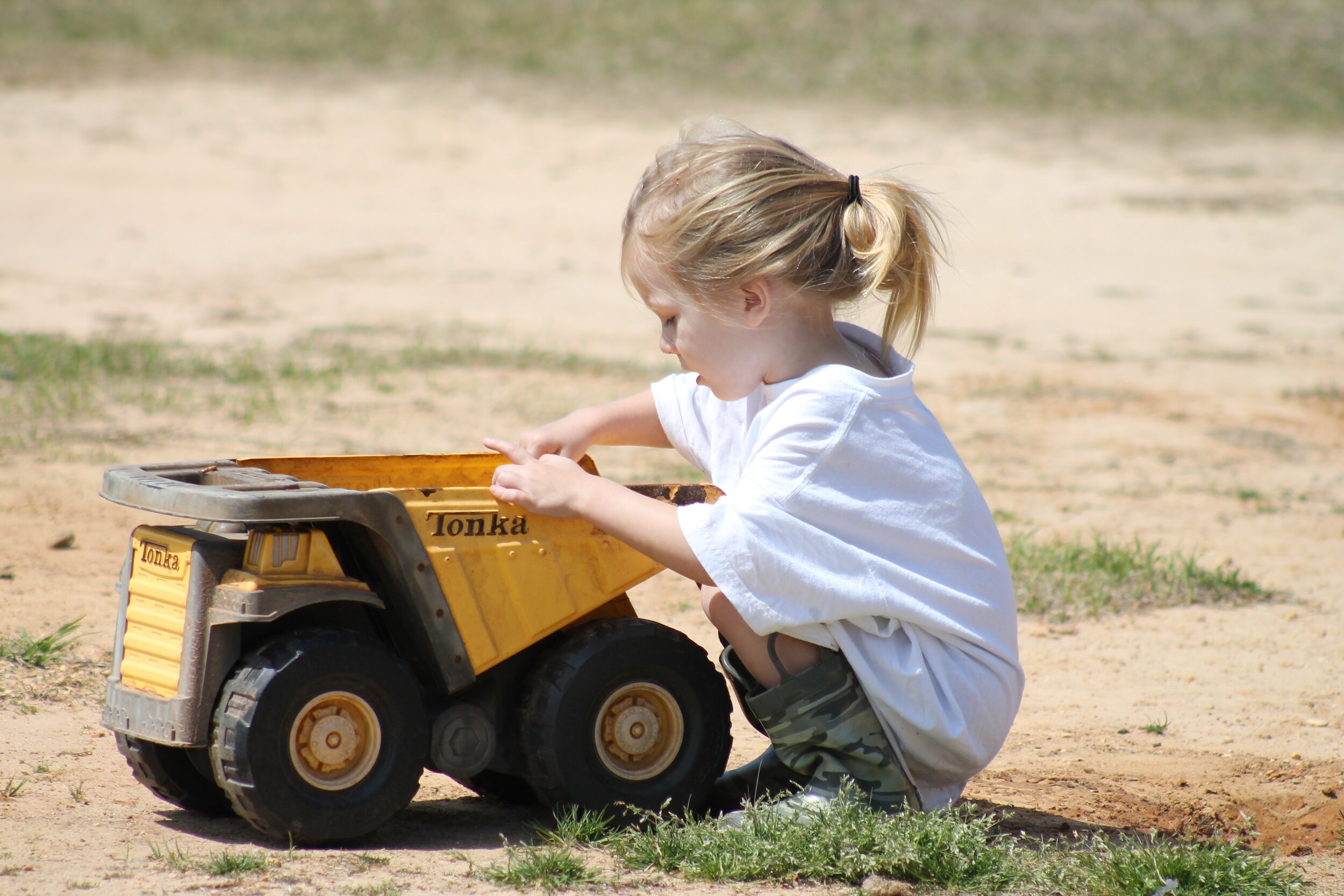
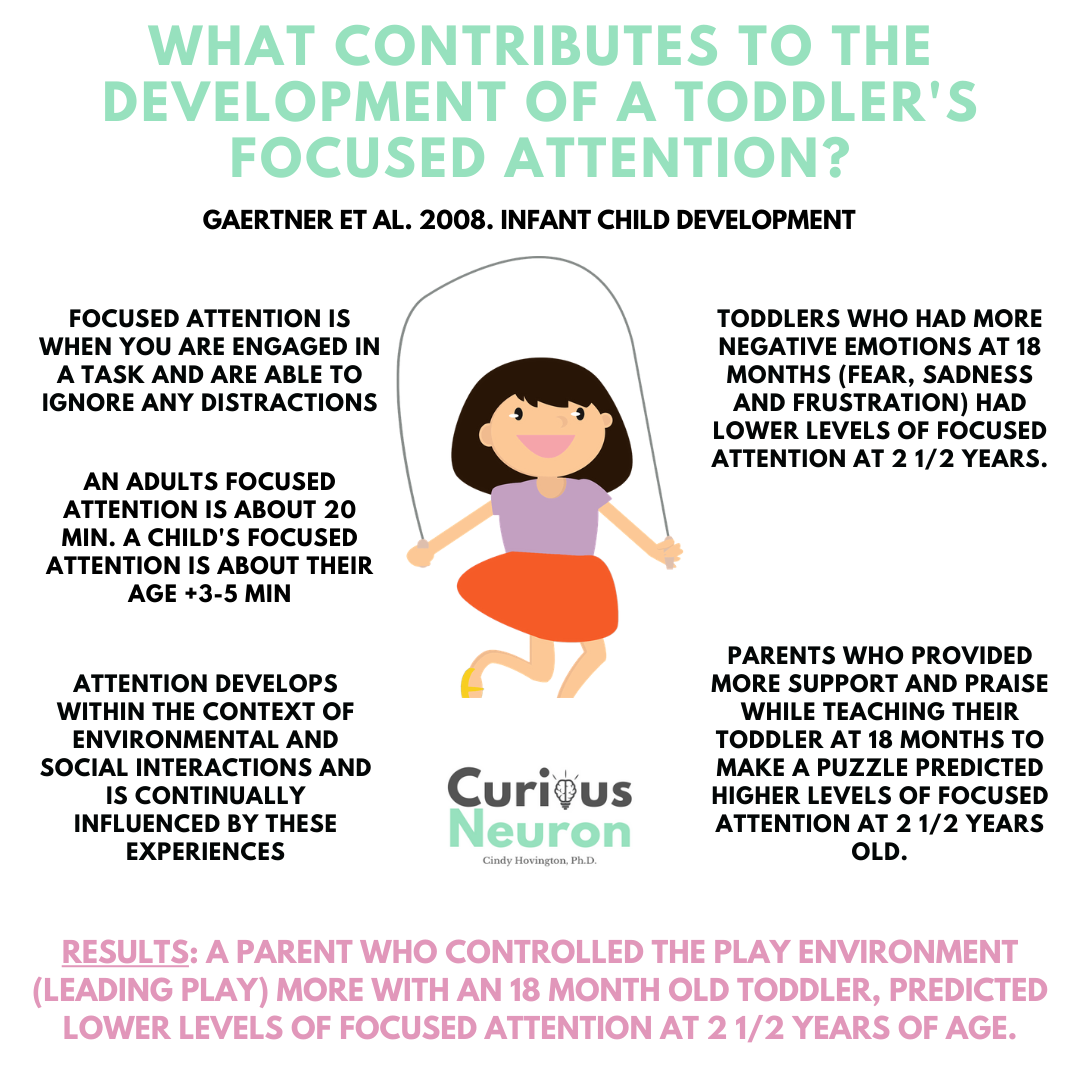
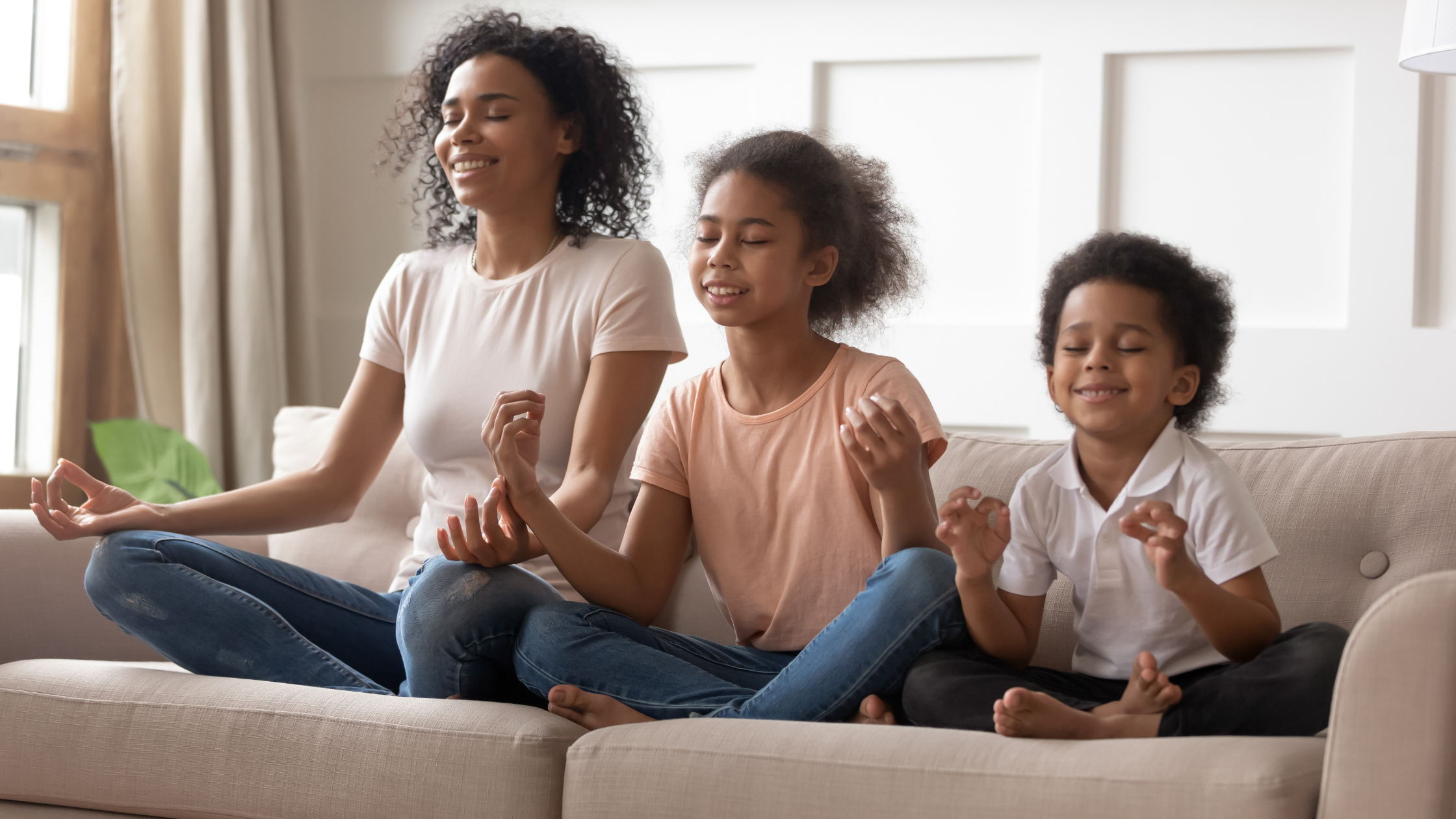
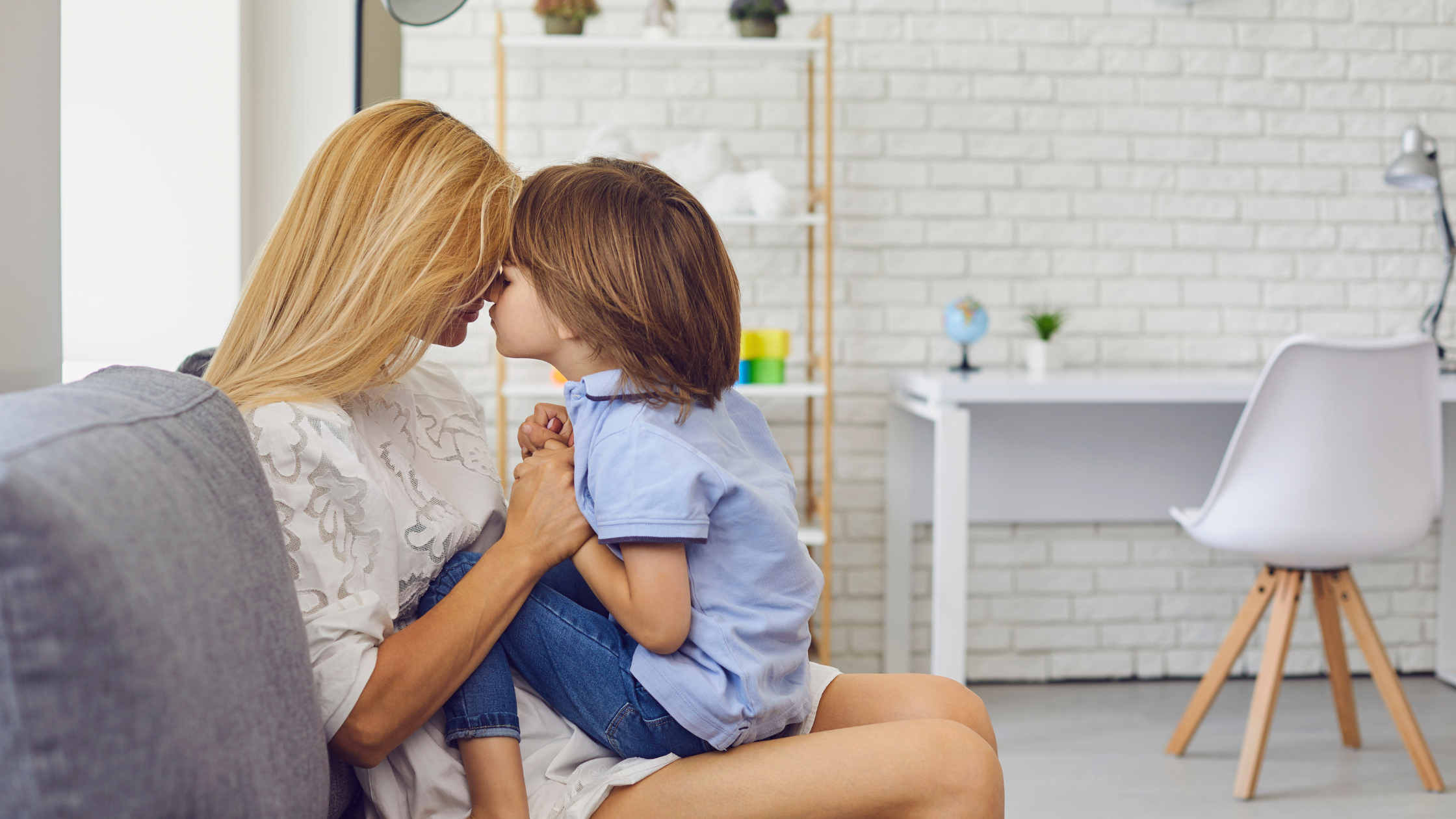
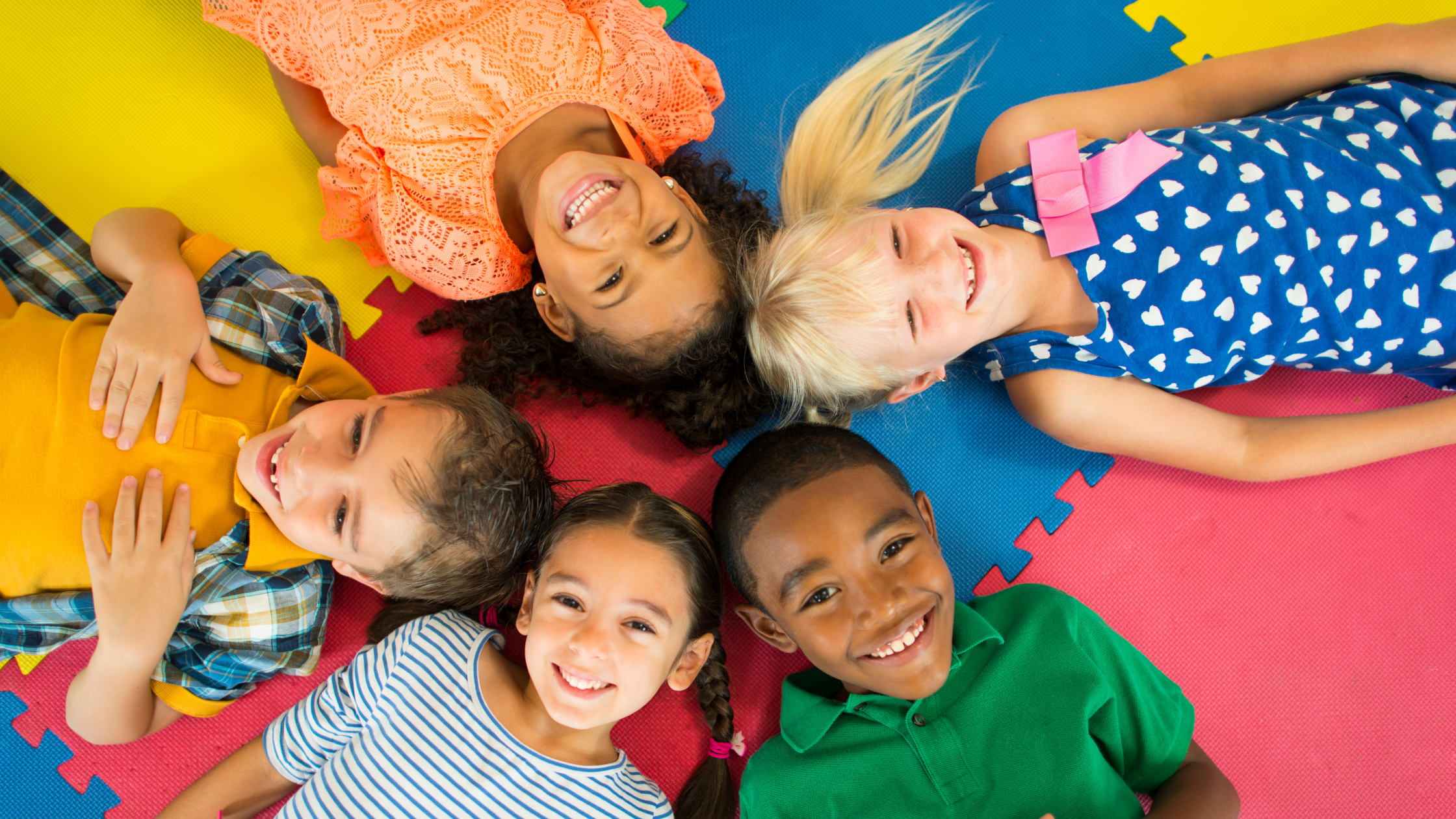
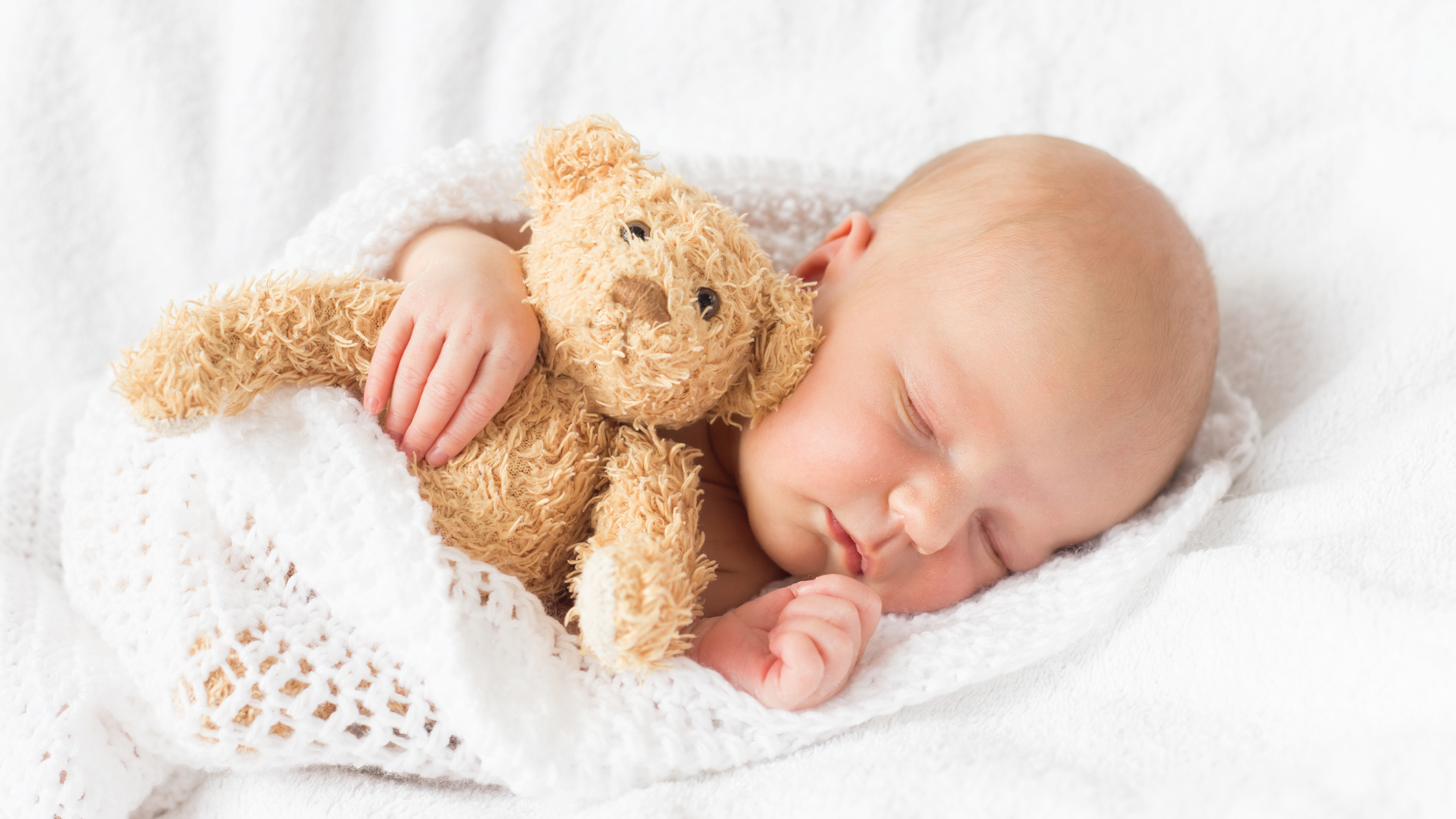
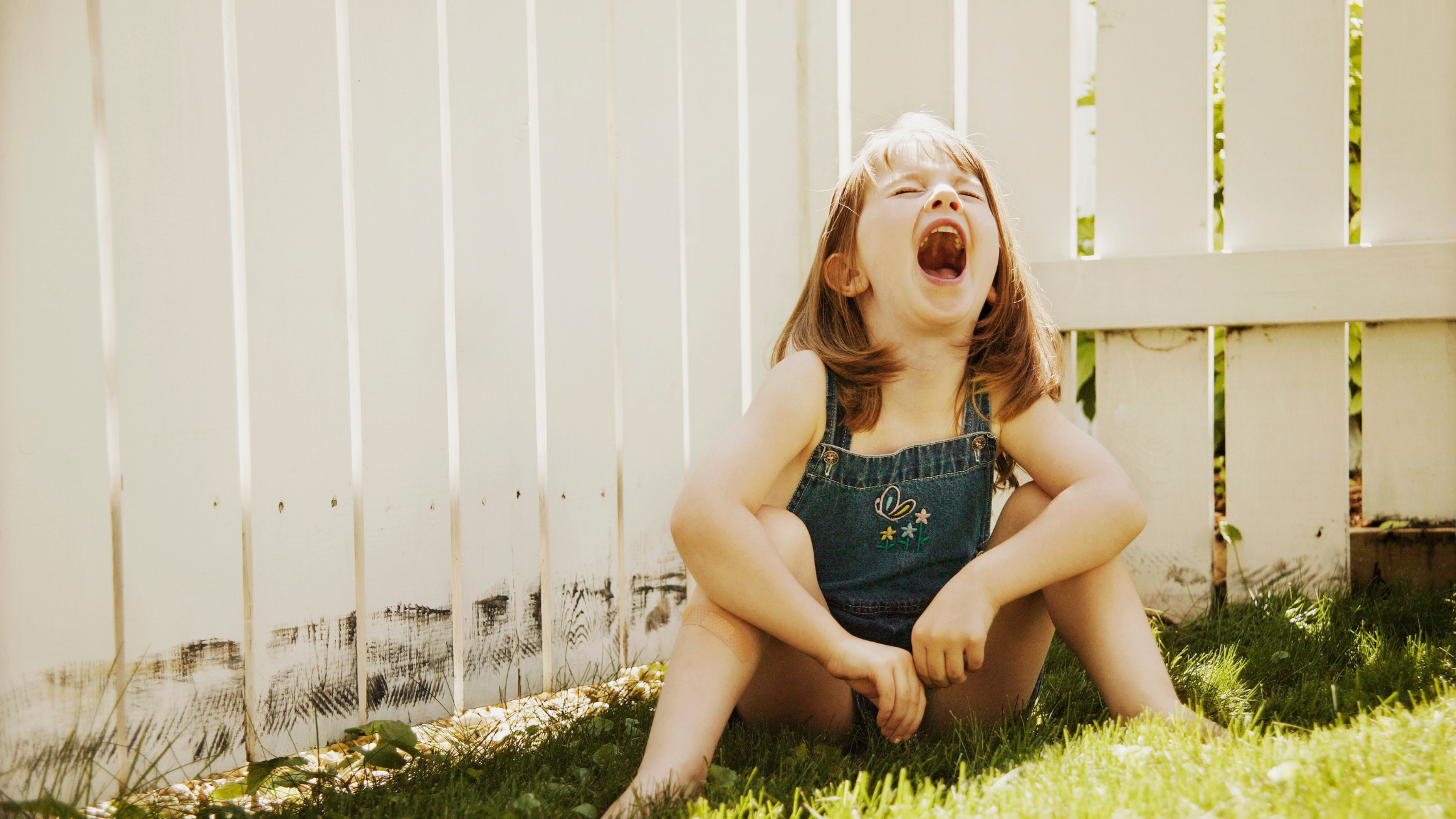




<p>Thanks so much for your comment! I appreciate the feedback :)</p>
<p>This is so interesting. I love how you say "let them guide". It is so easy (and comfortable) to put on the teacher hat when we are playing with our little ones. It's great to hear some of the brain benefits of letting them explore, create and learn independently. </p>